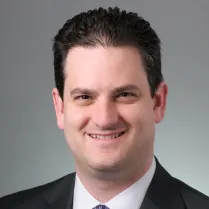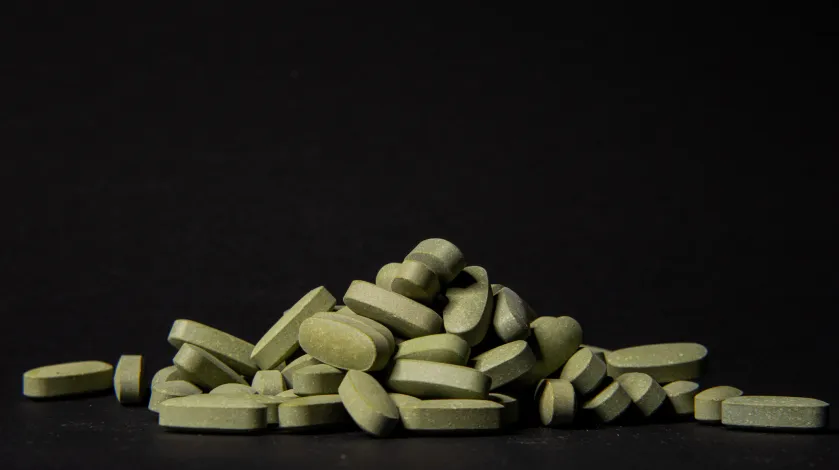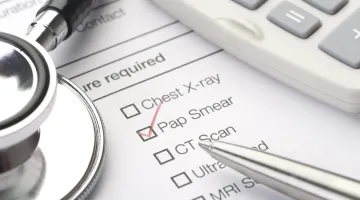What You Need to Know About Counterfeit Prescription Pills
Author

Todd Kerensky, MD
It’s no secret that the United States has been hit hard by the opioid crisis.
The effects of opioid use have been felt everywhere, from large cities to rural communities. The impacts of this crisis are far-reaching: towns and communities have had to rethink their approaches to public health, and countless families have experienced the pain of losing a loved one to opioid use disorder (OUD).
Communities and healthcare providers have tried to work together to stem the crisis by reducing the number of opioids prescribed to patients. While this is a step in the right direction, it hasn’t stopped people suffering from OUD from acquiring the pills through illegal means.
Unfortunately, there’s a new layer to the problem: last month, the Drug Enforcement Administration (DEA) issued a statement warning of the presence of counterfeit opioids throughout the United States, including in Massachusetts.
What are counterfeit opioids, and where are they coming from?
Counterfeit opioids are illicitly manufactured pills that are designed to look like common prescription drugs, including oxycodone/acetaminophen (Percocet®) and alprazolam (Xanax®).
However, while these pills may look like oxycodone or alprazolam, their ingredients may be completely different.
According to the DEA, these counterfeit pills are being manufactured and imported into the United States by Mexican drug cartels. From there, the counterfeit pills are being sold onto the streets of cities and towns across the country, including southeastern Massachusetts.
To make matters worse, according to Newsweek, some producers of these counterfeit pills have “presses” that allow them to make the same markings/indentations as legitimate pills, making it virtually impossible to tell them apart.
What is the danger associated with counterfeit pills?
Legitimate prescription medications like oxycodone or alprazolam are tightly controlled by federal regulations. The manufacturing processes must follow strict guidelines to ensure quality and safety.
Counterfeit pills masquerading as alprazolam or oxycodone have been found to contain fentanyl, a very potent synthetic opioid that has contributed to opioid-related overdoses and deaths across the United States.
In fact, the DEA conducted a nationwide sampling of counterfeit pills seized during the first three months of this year, and the results were troubling:
27% of the seized pills contained potentially lethal doses of fentanyl.
The issues with this are clear: if someone buys a pill he or she thinks is alprazolam but actually contains high levels of fentanyl, the results could be deadly. People buying alprazolam, a benzodiazepine, may not have tolerance or experience with opioids.
In addition, pills containing a combination of benzodiazepines and fentanyl are exceedingly dangerous. Benzodiazepines and opioids reduce breathing, and when taken together, exponentially increase the risk of not breathing to the result of overdose or death. The risk is much higher compared to using either a benzodiazepine or opioid alone.
The danger hits close to home as well: according to the DEA’s analysis of seized pills, there were 6 pills from Massachusetts that were found to have potentially deadly levels of fentanyl. People treated in our community for overdoses have tested positive only for fentanyl while reporting buying pills thought to be oxycodone.
How can these counterfeit pills be avoided?
Prescription medications like oxycodone and alprazolam should never be acquired from illicit sources.
These medications should only be taken when prescribed by a doctor, and should only be taken by the patient to whom the medications were prescribed.
In many cases, people purchasing these pills off the street are struggling with substance use disorders. People with SUD should seek treatment with a trusted physician who can manage opioid use disorder. This will help reduce the risk of illicit drug use and overdose, while also improving quality of life, including improving employability, while reducing the risk of incarceration.
Many patients begin taking opioids for pain management after injury or surgery and subsequently develop a physical dependence on them.
If prescription opioids are unobtainable for whatever reason, it is crucial for people taking opioids to discuss their unique situation with their doctor and NOT transition to street pills.
If you or someone you know is struggling with OUD, the idea of turning to street pills can be treated as a wake-up call, a sign that medical intervention is necessary.
Through the Grayken Center for Treatment at South Shore Health, patients with OUD or SUD can access medications for opioid use disorder (MOUD), which combine FDA-approved medications with counseling and behavioral therapies to provide a “whole-patient” approach to treating OUD or SUD.
Todd Kerensky, MD, is Medical Director of Addiction Medicine and Hospitalist at South Shore Health and is President-elect of the Massachusetts Society of Addiction Medicine.
Learn more about the Grayken Center for Treatment at South Shore Health.
Author

Todd Kerensky, MD







